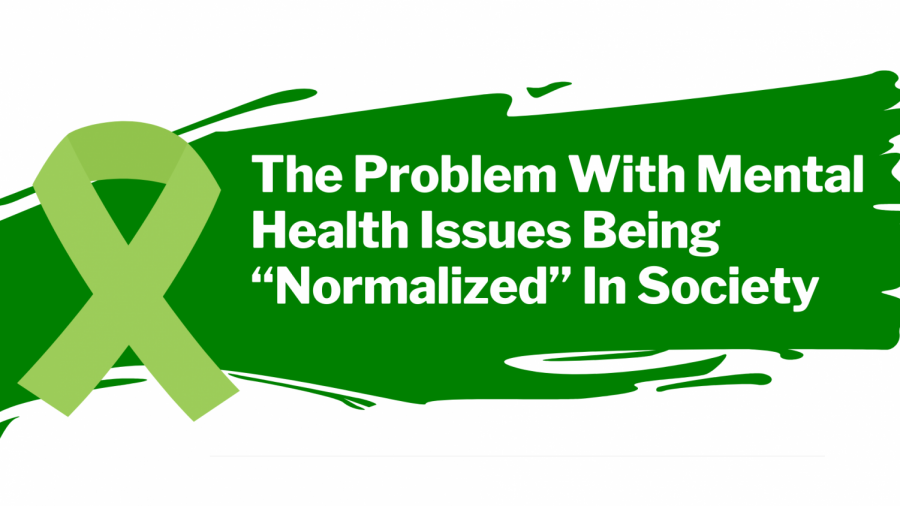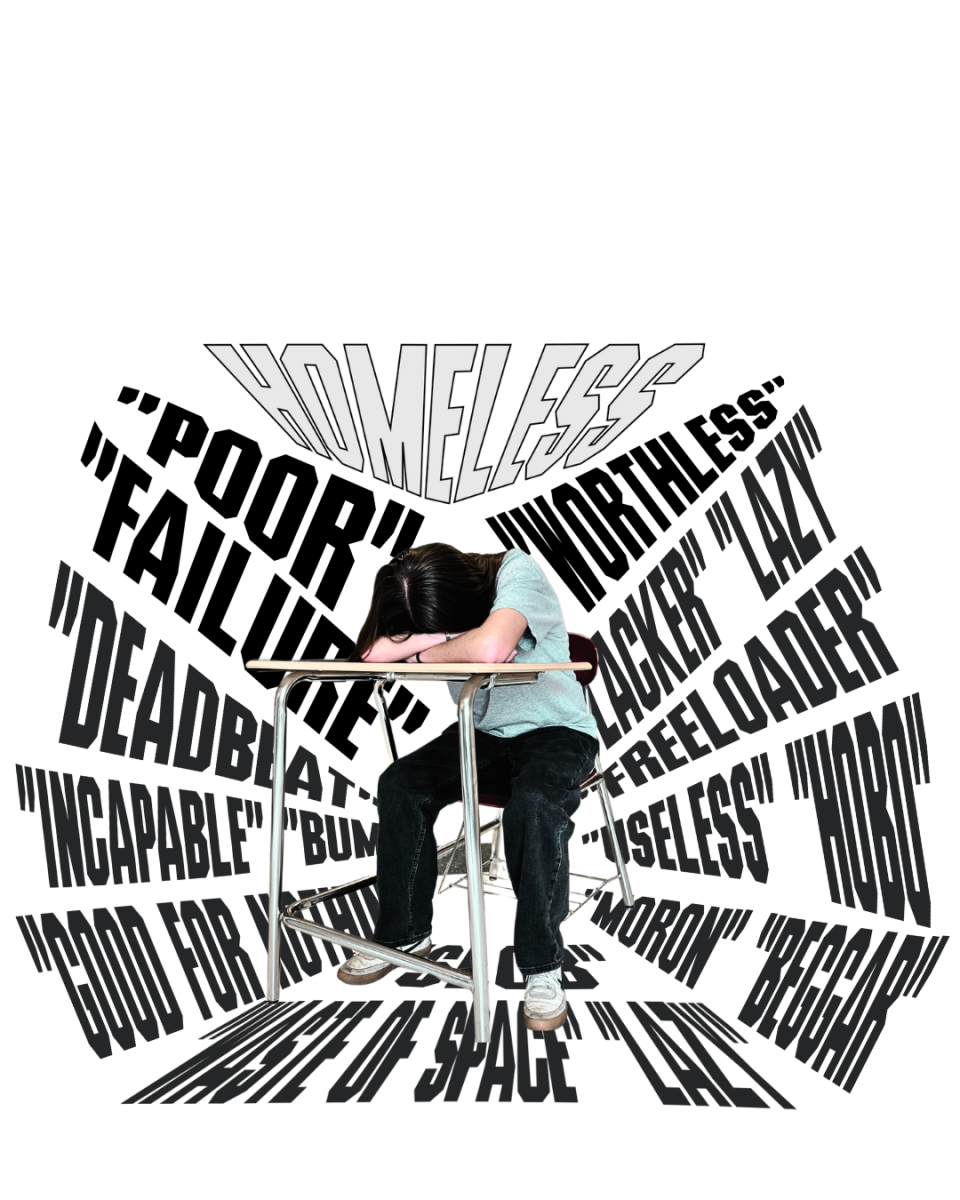The Problem With Mental Health Issues Being “Normalized” In Society
May 31, 2021
In today’s society, you can walk up to someone, feeling sad, or maybe a little down about something. Other days, you can feel happy, like nothing was ever wrong.
Mental health can certainly get bad, no doubt, but there’s definitely a difference between having a serious mental problem as opposed to having an off mental health day. There are stigmas within mental health that cause those with actual mental illnesses to feel minimalized, or as if their issue is just something that everyone experiences on a day-to-day basis. However, mental health is so much more than this.
According to the Mayo Clinic, a true stigma is when people view someone or something in a negative way because of a characteristic or trait that’s thought to be a disadvantage. In simpler words, it is a negative stereotype.
Stigmas have changed to become discriminatory in our society. They can be completely unintentional or obvious. They can be done out of “humor.” But regardless of the intent, it will likely have a negative effect on the person. For example, signs of personal weakness in an individual might cause someone else to joke around about how they are “depressed,” when in reality they just feel down that day, and it makes the person with actual depression feel insecure about themself. To start putting an end to stigmas, it is important to understand true mental illnesses, how the stigma around them affects people, and why you should stop using these in real life.
Researchers from the American Psychiatric Association define depression as “a common and serious medical illness that negatively affects how you feel, the way you think, and how you act.” It can lead to a variety of emotional and physical problems and can decrease your ability to function at work and at home.” Acting depressed means that one feels “utterly disappointed or ejected.” The difference between these two is that feeling unhappy every once in a while, or feeling sad about something, is not the same as experiencing it on a day-to-day basis. It does not mean that other people experience the various struggles and thoughts that those with depression feel on almost a daily basis. Feeling depressed one day means that you feel hopeless for a little bit, but you get over it.
Unless the correct help is gotten, people with depression cannot just “snap out” of their symptoms and thoughts. It takes serious time, help, and therapy for them to gain control of themselves again. So, instead of using these terms, try to use terms such as sad, gloomy, or unhappy on the days that occur when you feel a bit more down than usual. This can help those with actual depression to not feel like their illness isn’t serious, or that it is just something that everyone goes through on a day-to-day basis.
Another common mental illness that people have is anxiety. However, just like depression, having anxiety every once in a while versus experiencing it commonly to the point where it is negatively affecting people are two completely different things. Having anxiety is not just worrying about things or experiencing fear, it is experiencing “intense, excessive, and persistent worry and fear about everyday situations. Fast heart rate, rapid breathing, sweating, and feeling tired may occur,” according to the Mayo Clinic. When one feels tension or worry about something every once in a while, and they know how to get through it without experiencing any intense symptoms, this is not true anxiety. This stigma that everyone who has anxiety just “worries too much” or “should just stop worrying about everything” has put a label on them that truly does not help the person with anxiety at all. Dropping this stigma will help others dig deeper into anxiety and figure out how it will affect people. Understanding is truly the best thing society can gain from dropping negative ideas and thoughts around any mental illness.
Overall, while stigmas are heavily used in society today, the impact that they have on people with actual mental illnesses is undoubtedly troublesome and offensive. When these stigmas are used, oftentimes it makes the other person feel as if they should not get help, and that their own mental illness is “normal,” when in reality, it is the other person in the wrong. To put an end to stigmas, it is important for everyone in society to begin looking at their views on mental illnesses and be willing to change them after educating themselves on it. Having a clearer perception on what mental illnesses look like versus experiencing certain emotions every once in a while is one of the key factors of distinguishing the two.
To make a change, understanding and realizing the weight of your stereotypes on other people is the most important characteristic to put an end to stigmas.
Savannah Spengler is a freshman at Emmaus High School.











Christine Hess • Jun 1, 2021 at 2:55 pm
This is very important information and so glad you felt strong enough and secure enough to share it and speak out. I know this will benefit others! Good for you!